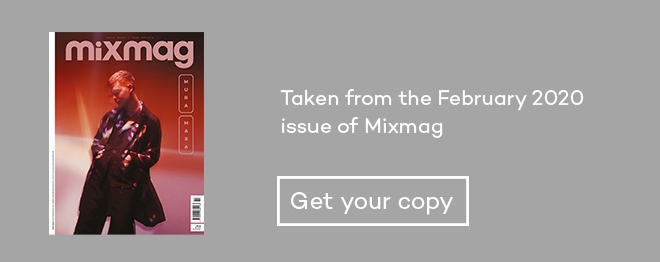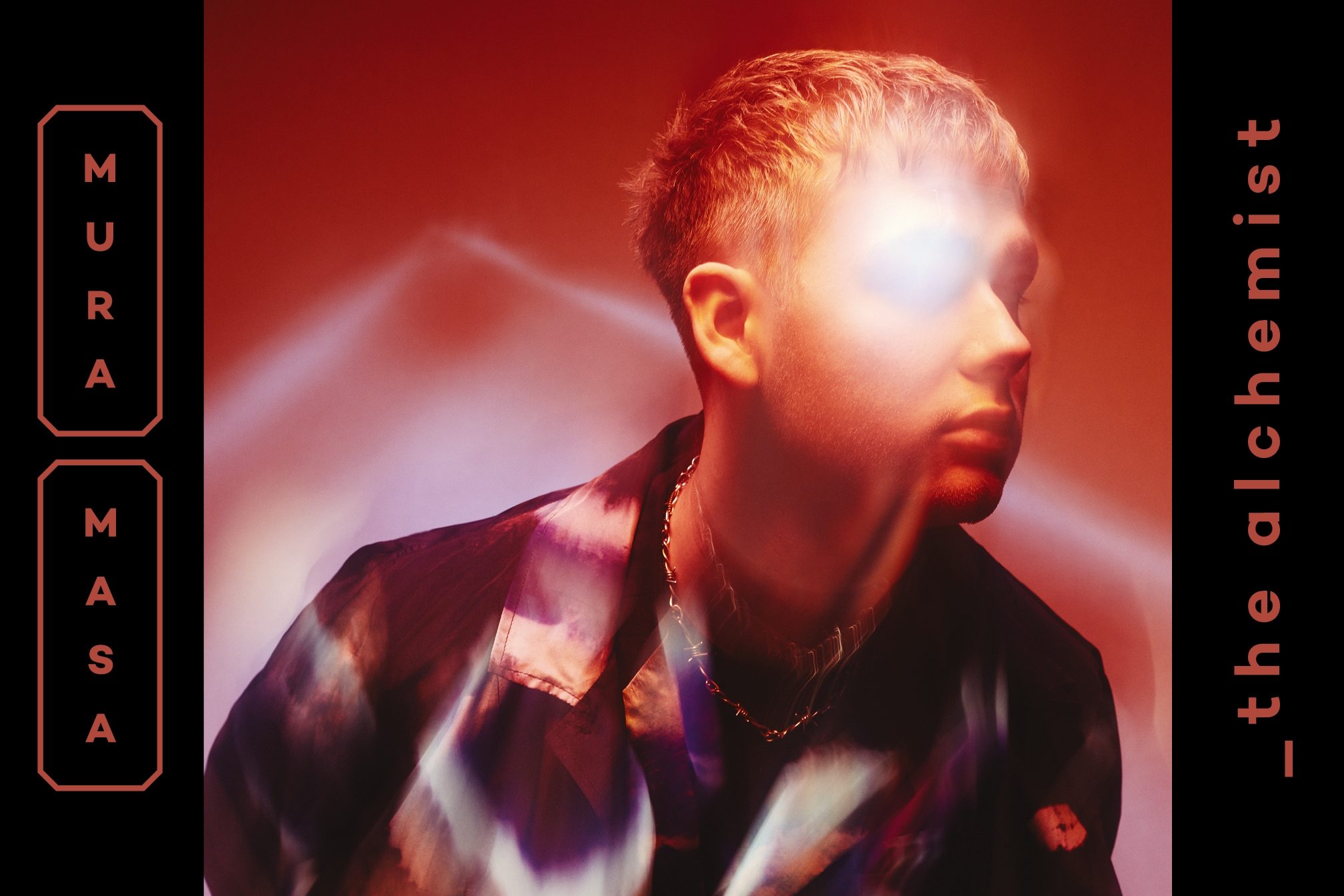 Cover stars
Cover stars
Turning the wheel: Mura Masa is setting off on a whole new direction
Mura Masa faced down difficult second album syndrome by doing exactly what he wanted to in the studio
'Everything Is Connected’ reads the sign on the side of The Depot, Mayfield, in letters almost as gargantuan as The Warehouse Project’s new venue. Beneath them, in the Manchester drizzle, smoking diffidently and surveying the passers-by, stands an artist who embodies the idea. Twenty-three-year-old Alex Crossan, aka Mura Masa, has built his career so far on a special kind of alchemy, coaxing the best out of – and melding together – a dizzying array of collaborators without ever losing the thread of his own distinct musical identity.
In 2017 his eponymous debut album skyrocketed him to new heights, new fans and even a couple of Grammy nods – Alex is the first artist to be nominated as both a musician and creative director for the same album. With features from Charli XCX, Damon Albarn, Christine And The Queens and A$AP Rocky, it was a critical and commercial success, as eclectic and diverse as the cast list suggests. Rocky-featuring track ‘Love$ick’ reaching No 1 on the Spotify Viral Chart in the UK and the US, with close to 225m plays and counting on the platform.
Read this next: What's it like when Aphex Twin plays your music?
With his second album on the way, we’re in Manchester for a Mura Masa-curated party. The programme hops between clubbish pop edits to soul to punk to folk to hardcore right through to Alex’s unique fusion of all of it, and at times the space feels more like a festival than a club night. On the bill are the likes of Special Request, Vegyn, Nao and Jacques Greene. “The Warehouse Project is quite dance music and DJ-focused. I thought it could be interesting to reconcile the attitudes of that world with similar attitudes in the punk scene or the DIY scene with a bit more of a bandy vibe,” says Alex as he films Mercury Prize-nominated post-punk band Black Midi on his phone. Dressed casually in black with a brown cap on his blond head and silver barbed wire chain peeking out over his jumper, he pauses occasionally, offering a thumbs-up to his drummer Meg and duo Jadu Heart (who performed earlier), one arm draped over the shoulders of his girlfriend, Irish vocalist Cosha (fka Bonzai). The packed crowd, many dressed in pleather, neon hues and bikini tops as well as curious amalgamations of all three, are unfazed by Alex’s low-key presence bar the occasional, hyped-up-by-their-mates-to-approach fan offering words of appreciation. He looks surprised to have been recognised.
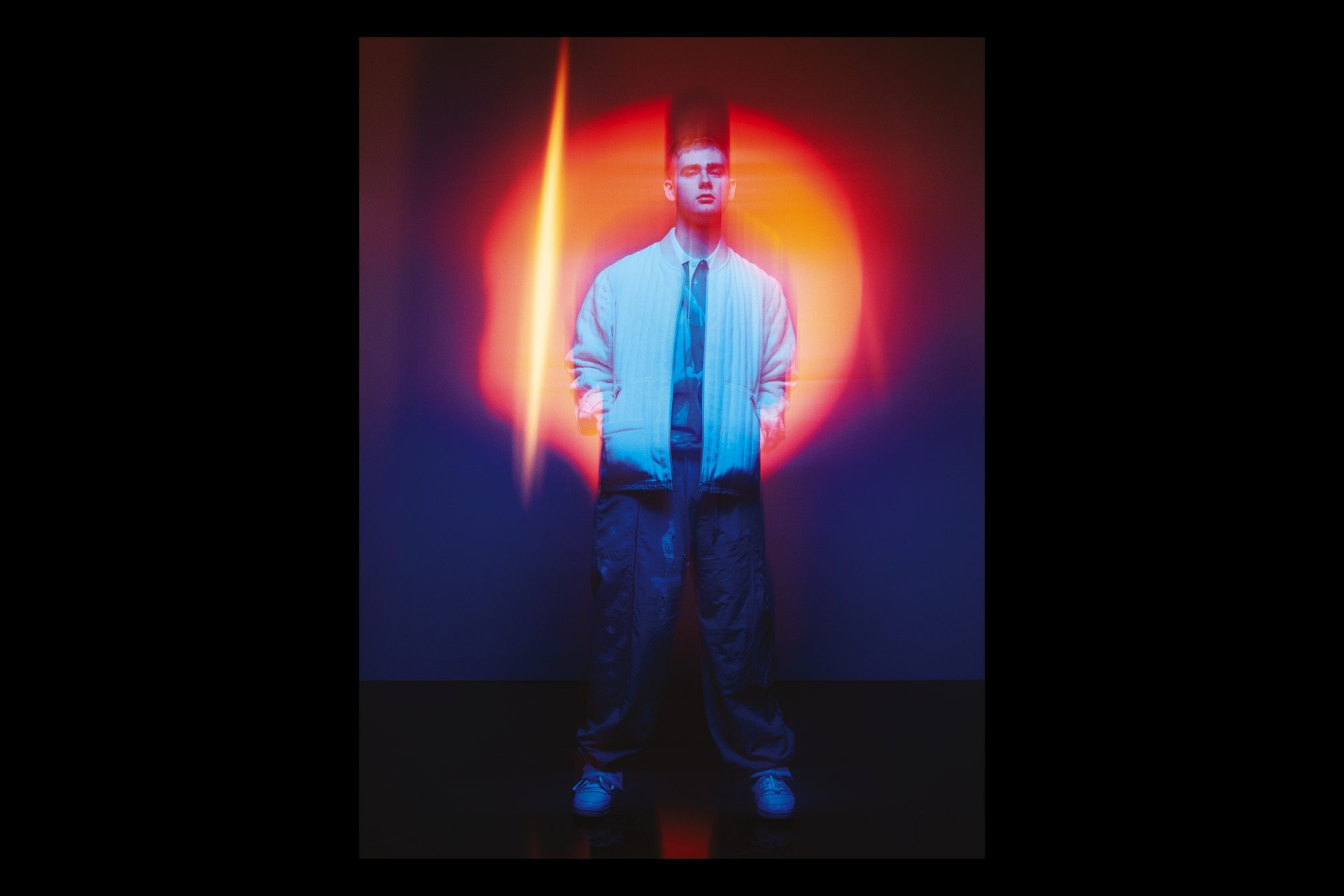
Like so many other artists who emerged in the mid-2010s, Crossan started out as a bedroom producer with interests in post-dubstep, maximalist bass music and melancholic material by James Blake, Jai Paul, Four Tet and Hudson Mohawke, as well as crossover bands like Radiohead and Gorillaz. He put out two releases (‘Soundtrack To A Death’ and ‘Someday Somewhere’) in 2014 and 2015. Both projects orbited around his heterogeneous, accessible brand of melodic, trappy bass instrumentals loaded with r’n’b vocal samples and features from the likes of Nao and Cosha. ‘Mura Masa’ was the breakout, though, earning a pair of Grammy nominations (he didn’t win then, but he since has for a remix of HAIM’s ‘Walking Away’). The diversity of his guests suited the varied nature of his productions, Alex the connective thread between newcomers and stars, between bass, pop, punk and everything in between.
He was born in 1996 in Guernsey, one of the Channel Islands. With a population of 63,000, quiet and self contained, it’s like a rural English town – albeit with an important difference: “there’s no train to the next town over, and you can’t just drive somewhere else,” says Alex over cans of still water backstage. What music scene there was, was divided into either folk or acoustic-leaning acts, or rock and metal bands. Alex had interests in both, but still craved something different. Thankfully he came of age right around the time “when the internet was becoming the horrible monolith that it is now.” He wasn’t exposed to high volume live music until much later in life. Instead he was experiencing club music through the very intimate setting of his bedroom and crate-digging online, two things he reckons influence his output today.
Read this next: How the women of dance music are taking over high fashion
But well before stumbling across LuckyMe or 1-800 Dinosaur came a strong musical upbringing. His older brother is an “amazing vocalist” and his dad was a hard rock bass player in Glasgow in the 80s; his mum managed a few bands back in the day, too. The Crossans were also involved in the church (“It was very 21st century and groovy”), his first gig probably playing bass there as part of the band. He tried out various (non-church) bands later, as a teenager; when they were oversubscribed with guitar players he switched to drums, before picking up various other instruments, he says, almost subconsciously. The last band he was in before he left Guernsey was called So Cold The River, taken from a thriller novel of the same name by Michael Koryta. “It was very experimental, technical, noodly metal but with this very extreme emotion behind it,” he recalls. “To me, it feels very natural to come full circle, [to come] back round to digging into that.”
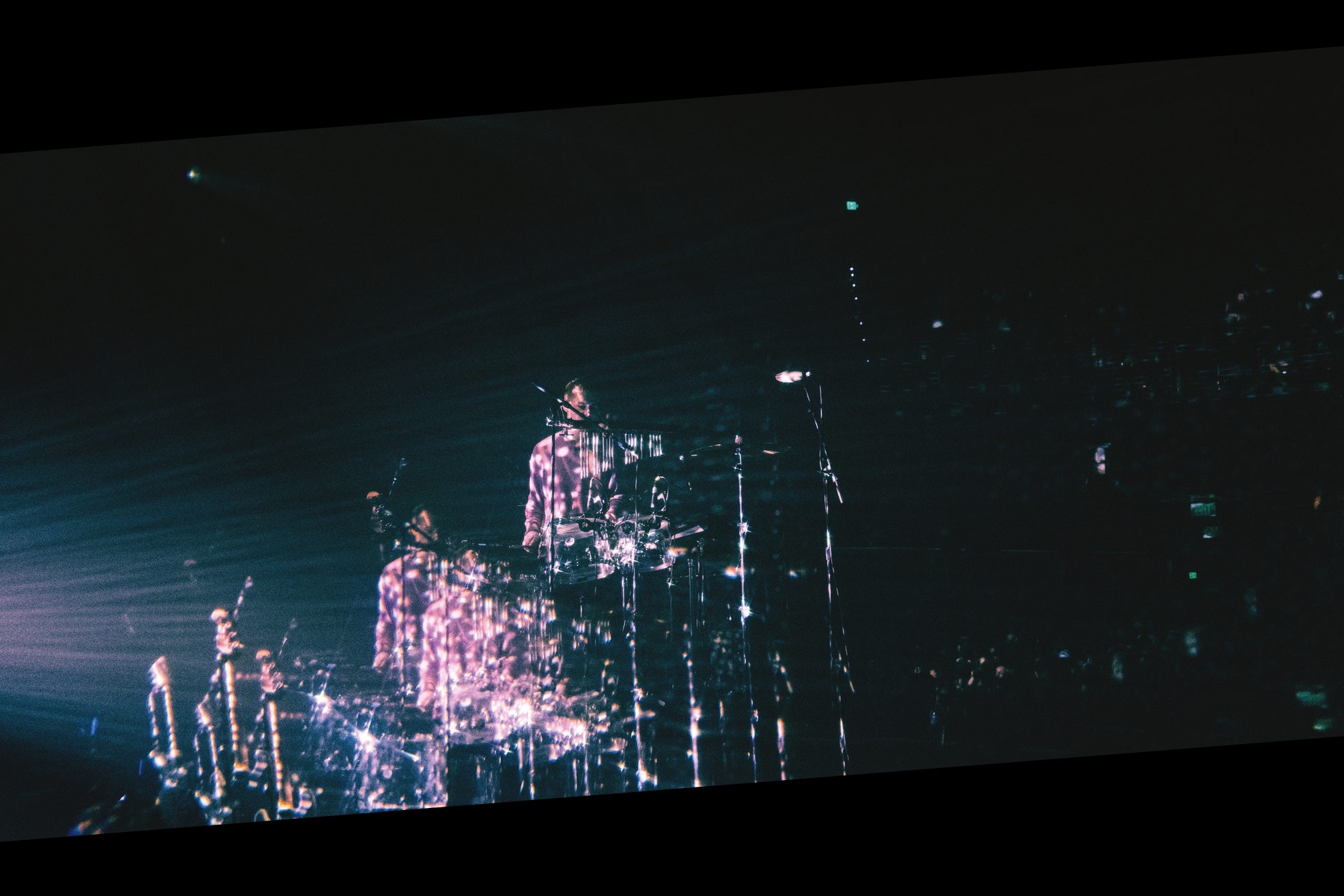
The circle in question is his return to ‘guitar music’, a term that crops up several times, with Alex pronouncing the quotation marks. “I keep using the term because it doesn’t imply anything – it doesn’t imply any politics, it’s just ‘guitar music’,” he explains. His second album ‘RYC’ (Raw Youth Collage) is an emotional DIY foray into guitars, new wave punk, rave and folk, as he looks back to his early years for thematic and musical inspiration as well as concepts like hauntology (coined by philosopher Jacques Derrida to describe a kind of ‘nostalgia for lost futures’). “It’s very intentional,” he says, looking away to consider his words. “In general, in the zeitgeist there’s a move towards more emotionally-led music, and there’s a much quicker route to that through guitars and drums and bands than there is through electronic music, sometimes.” With a few exceptions, we suggest. “True,” he replies with a smile, “unless you’re Burial or Aphex Twin or any of these wonderful people.”
Read this next: The dance music inspired by punk
From a fan’s perspective, there are a fair few people Alex finds wonderful. However, he rarely finds himself starstruck nowadays. “The more you work with people in and around music, the more you realise they have the same anxieties and social awkwardness at every level. But occasionally you do meet people who just walk into a room and they have this presence that’s otherworldly. Then it’s quite hard to get your bearings, or you forget what to say.”
There are no signs of nerves during his ecstatically received live set. His relaxed, calm demeanour becomes almost magnetic as he dips and dives between various instruments, strobes casting the air above the audience in bright, kaleidoscopic hues. Meanwhile, vocalist Fliss darts across the stage with enviable energy levels, the performance even transfixing security staff and encouraging bodies onto shoulders with lighters waving high.
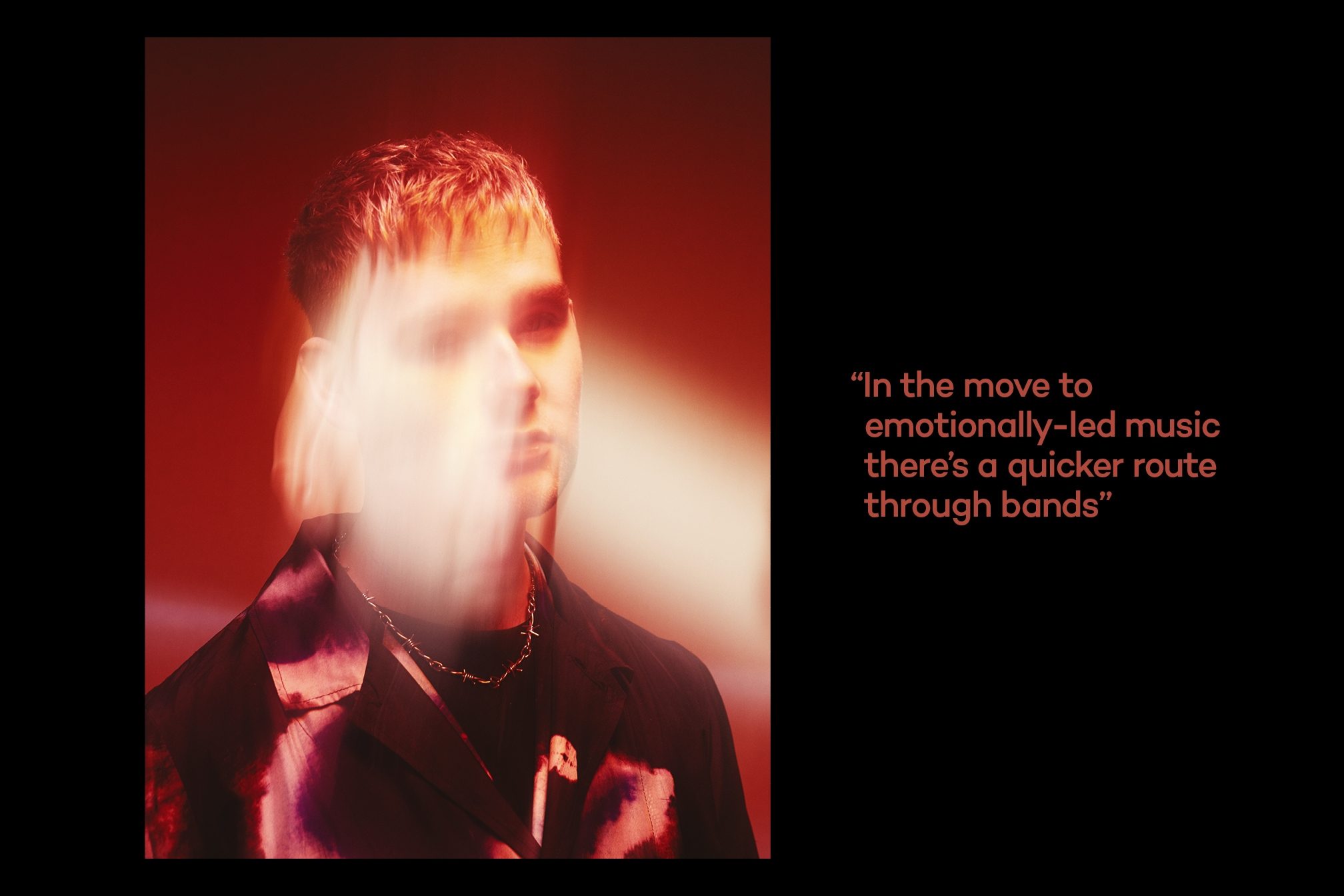
Backstage, one of Alex’s friends tells us he’s still wrapping his head around just how far he has come. They’ve been friends since they were children and he’s still got a CD from the one time Alex did a signing at the HMV in Guernsey. He’s going to keep it for life, he tells us earnestly; Alex is a “star” now. Alex disagrees. In his eyes, he’s not a star of anything – stardom to him is reserved for artists like Thom Yorke. Thom, says Alex, has that presence. In fact, he saw him once in Mayfair and says he felt like his chest was falling in on itself. “Radiohead are a model of a UK act who have stayed very much that,” he tells us later. “Something they did that I’m very interested in is this feeling-out of where you’re going, and doing what you feel from album to album. It’s taken them on this mad journey, and somehow, they connect that road up as they go. It can be done!”
Read this next: The return of gabber
Then there’s Damon Albarn. They first met in 2017 to discuss Alex producing for Gorillaz’ album ‘Humanz’. “I was frantically asking him loads of questions like, ‘Well, what’s the album about?’,” says Alex. “At one point he leaned over, put his hand on my knee and said, ‘We’ll see each other again, don’t worry’ – and we just spent the rest of the time playing with the hundreds of weird drum machines that he’s got.” They did, collaborating later on ‘Mura Masa’ track ‘Blu’. For Alex, working so closely with an artist who helped shape his musical path, on a duet about his girlfriend Cosha, was an unforgettable experience. How did she find it? “I don’t know if she’s really thought about it that much, because she writes songs about me [too] – we have an agreement: ‘All’s fair in love and war and songwriting’.”
Finally, there’s Slowthai, with whom he’s traded album collaborations. “When he inevitably gets the recognition that he deserves there will be a lot of people left starstruck by him. Myself included!” he says. We huddle over his phone so he can show us a new video the pair just shot in Serbia for ‘Deal Wiv It’, a track we can only describe as ‘The Streets-meets-“Parklife” for the disgruntled internet generation’.
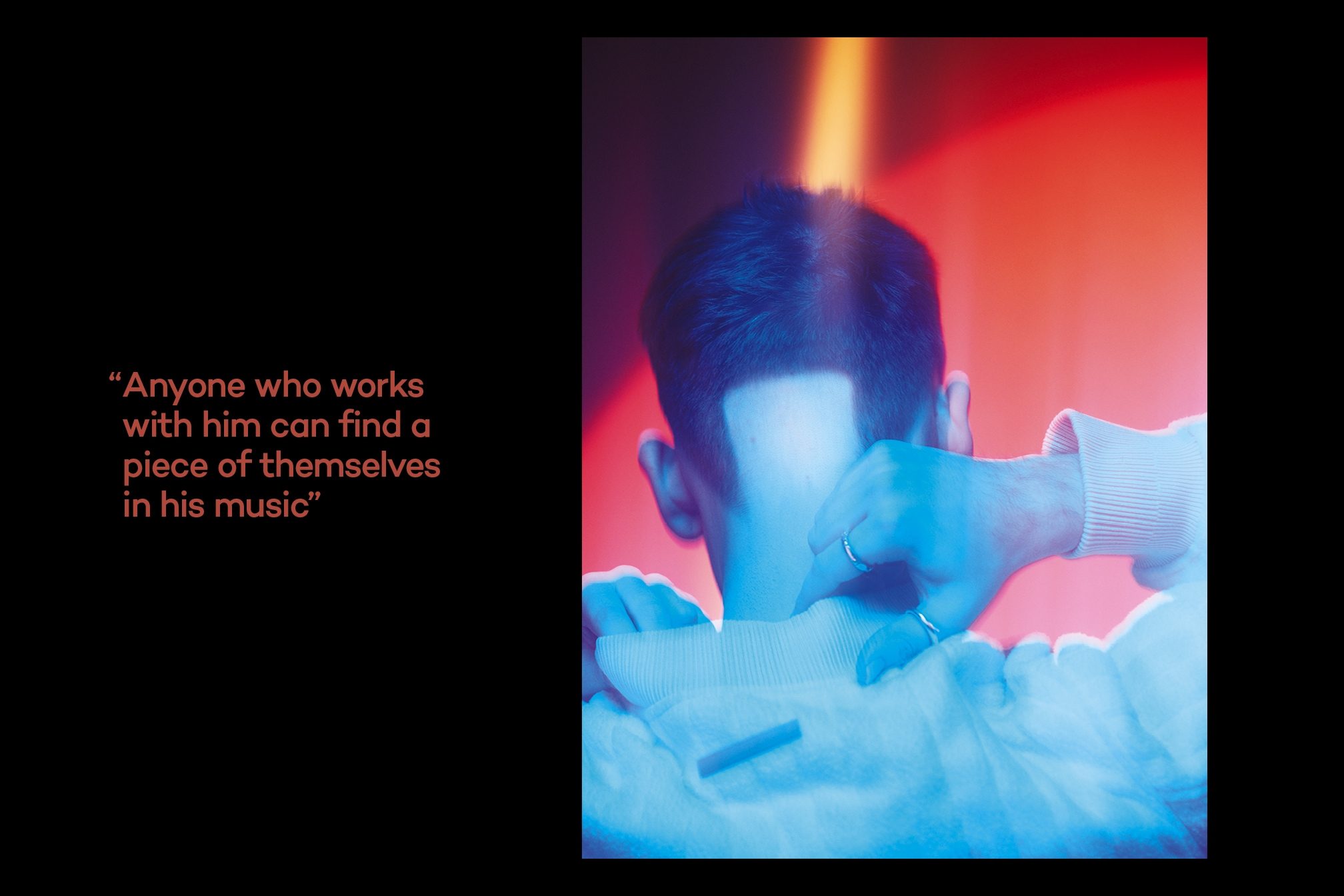
As Alex gets older and his life experiences change, we wonder how it will fare, this collision of youthful idealism with the disruptive voice of the ‘No Hope Generation’? Will his sound mature, or would he prefer to keep his music relevant to the crowds of tomorrow – even if he’s no longer part of that demographic? “I think about this a lot,” he says. “Will I be more of a [artist and photographer] Wolfgang Tillmans and just be looking towards whoever is youngest, or will I be like Thom Yorke and write about how I feel the whole time?” Radiohead again! Alex laughs. “I was just listening to a bunch of podcasts and there’s a really good Johnny Greenwood one and he was talking about this sort of stuff,” he explains. “The idea of being a curator and having the platform to put ideas in front of people that they might not necessarily come across themselves. I really like that role as a producer of ‘popular’ music. Just turning the wheel of the ship one degree and setting course on this whole other direction.”
Is there something he sees in that new direction that feels necessary? “‘Necessary’ is a really good word,” he says. “I think with all the guitar stuff on the next album, people’s initial reaction will probably be, ‘Oh, I thought he made that other kind of music’. It might take a while for this whole thing to come into focus, but I’m totally OK with that.” After the ‘Mura Masa’ album, Alex found himself in the ‘sophomore slump’. He knew he didn’t want to just repeat his first project, but wasn’t sure what he wanted to say on his second. “There’s was a certain amount of pressure and I tried not to think about it too much, but there’s something expected of you when you start your musical journey. Like, ‘Well, what’s he going to do next?’” he says. “But I’d never really heard it put like that before: ‘Why don’t you just do what you want to do?’. So that’s what I did.”
Read this next: The best basslines ever
His use of guests is different this time, too; they’re used sparingly, and where thematically appropriate. “Take Clairo, for example: I feel like she’s kind of at the epicentre of a new wave of DIY bands coming out of America which harks back to a lot of the stuff that I would have been listening to as a kid, like late 90s/early 00s, a lot of Midwestern emo and shoegaze and grunge. So, it was kind of case by case, picking the right people and asking them to write about this specific theme, and also being a bit more selective with where the guests are – and making room for me to sing myself!”
Calling on former collaborators as well as new names, Alex also enlisted Tirzah, Georgia, Slowthai, Wolf Alice’s Ellie Rowsell and more. So with more of his own voice on the album, can we expect a James Blake-style pivot from bedroom producer to leading man? “Maybe... I’m a bit of a dilettante in that way, so I like to keep my feet in both arenas,” he says. “I hope it’s not jarring to people at all. I hope that they don’t even care – I don’t mind that. Even if they don’t know it’s me singing, it’s more about the musical ideas; they take precedence.”
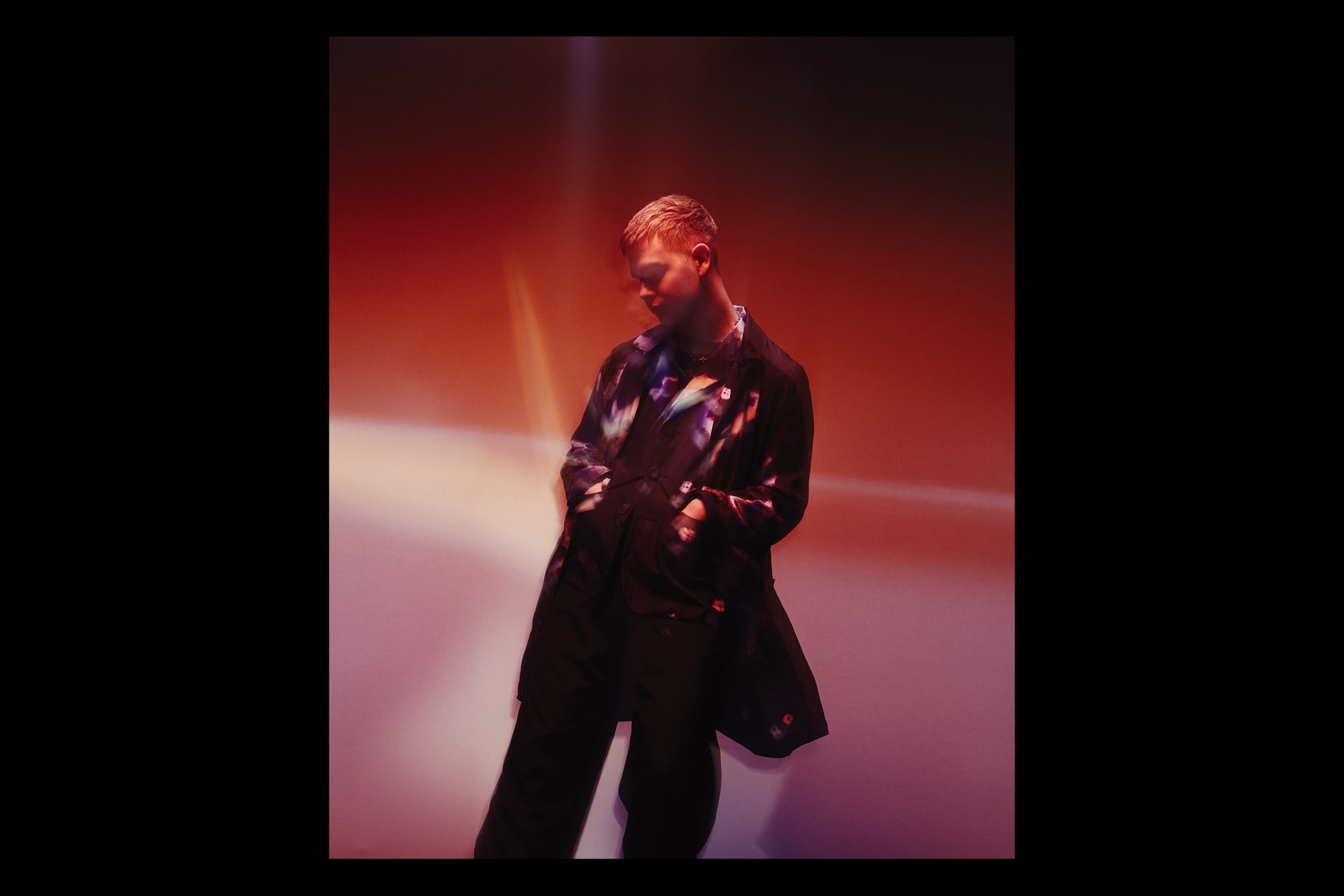
When we catch up with Nao, she says this blend of sounds is part of Alex’s appeal as a collaborator. “People want to work with him because the music he makes hints at so many different styles,” she says. “It’s got the dance element, but it’s also so soulful, it’s grimey, it’s punky, it’s so many different things – and I think anyone who works with him can find a piece of themselves in his music.”
Alex uploaded his first Mura Masa production in 2013. The alias – initially ‘Muramasa’ – was inspired by a 16th century Japanese swordsmith. With a long-time love for Hayao Miyazaki and Studio Ghibli, Nintendo and his “idol”, the game designer Hideo Kojima, Japan has long been a fascination. “I’m bang into [Kojima],” he exclaims. “I could spend the rest of this talking about video games. I’m interested in games and film in particular, because they are sort of perfect forms. They encompass a lot of different art in one smooth way.” In fact, he says, he listens “almost exclusively” to film and video game soundtracks, with iconic music from the likes of Zelda a heavy influence on his writing style. Elsewhere, he’s into label Speedy Wunderground and bands like Squid and Black Country, New Road – who he declares may be his favourite band of all time. He’s also been listening to a lot of Micachu, aka Mica Levi’s, film scores, as well as recent solo work from (naturally) Johnny Greenwood – the emotionally charged nature of music that’s intended to be experienced as part of a wider ‘world-building’ narrative, a major connection to his own artistic approach.
On the cusp between albums, Alex is conflicted. Not about his approach, or even his new material – that he “super-duper believes in”. But rather, the choices he should make now, the career trajectory he wishes to follow. He’s a planner, almost to his own detriment, and a “critical over-thinker”, a trait he’s working on in therapy. But even he knows that there’s some balance to be had. “If you want to be disruptive and totally transparently honest, then you should just live day to day and do whatever you want and let other people worry about the long term and what you are doing next week,” he says. “[That can be what] separates an artist with longevity from someone who’s a bit more ‘flavour of the month’: being able to apply vision and being able to see what you want your canon of work to look like. At the same time, it’s like, ‘Fuck, just make good music, it’ll be fine!’”. It will. It is.
Jasmine Kent-Smith is Mixmag's Staff Writer. Follow her on Twitter
Read this next: Get the best of Mixmag direct to your Facebook DMs

